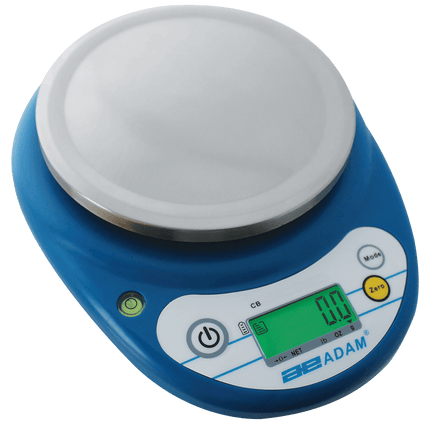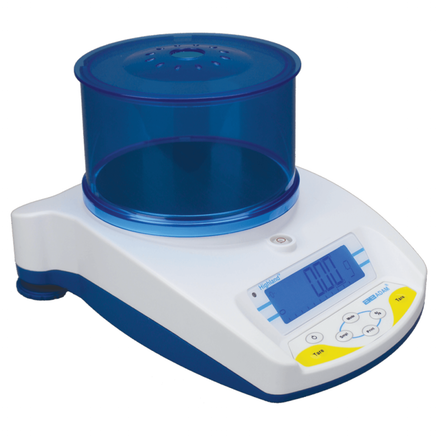
How Much To Feed a Puppy
With the excitement of buying a new puppy comes the need to make sure you are looking after it correctly, and a big part of that is diet.
We know that feeding can be a complicated affair, so in this blog we’re aiming to give you all the information you need to make sure know exactly how much to feed a puppy to ensure your pet is getting all the nutrients and vitamins it needs for a healthy development.
If you're still looking for a set of weighing scales for weighing out your puppy food, see our full range here.
Why is diet important for your puppy?
Diet is one of the most important things for any young animal, and a puppy is no different. The correct food and the correct amounts of food ensure that your pet is getting the right amount of nutrients and vitamins needed for a healthy growth and development. This is a key stage in their life and an incorrect diet could lead to stunted growth, or even health problems further down the line.
What can puppies eat?
Before we move onto the specifics of how much to feed your puppy, it is a good idea to understand what your puppy can eat in the first months of its life.
When a puppy is born, they will use their mothers for feeding until weened – which should be around the 8 weeks old point. From here they should be eating solid food, which will most likely come in can as ‘wet food’ and be labelled as ‘puppy food’. There is no brand or particular type of food that is better than the other – all puppy foods will contain the correct amount of nutrients and vitamins needed for healthy growth, such as proteins, fats and calcium.
Owners can expect to use puppy food for the first year of the dog’s life, but this can differ depending on breeds and size so it’s always best to talk with your vet to set out the correct plan.
As well as tinned food, puppies can also eat cooked meats such as chicken or lamb, although this shouldn’t be done too often as it could lead to upset stomachs or overfeeding. Leading dog food manufacturer Purina recommends a 90/10 rule, where 90% of a puppy’s diet comes from substantial whole meals, and 10% is from treats and ‘extras’.
Importantly, there are lot of foods that can be toxic to puppies so it’s crucial you know what these are. For a list of what not to feed your puppy, see this article from the RSPCA Australia.
How much should I feed my puppy?
Firstly, it’s important to say that is in no way a definitive guide, and it’s always best to talk about your puppy’s diet with your vet.
A puppy should expect to eat around 20 grams of food per 1kg of bodyweight very single day, so if your pet weighed 10kg then it would need roughly 200 grams. Remember that this is for a full day, so your total amount should be split into however many meals your puppy has. To do this, it’s best to use an accurate set of scales to determine the weight of each meal. This rough guide can then continue until they reach their first birthday and a more general feeding plan can begin.
To help keep track of your puppy’s health and to enable you to set out the correct diet plan, it’s best to regularly weigh your puppy every 2 - 4 weeks for the first 6 months. A puppy is expected to gain around 5 – 10% of their body weight every day from birth, but you can also keep a close watch of how your puppy looks and whether or not they are overweight or underweight.
For more information on dog weight, please see our blog post.
How many times a day should a puppy eat?
During the first months of eating solid food, a puppy will need eat more regularly than a fully grown dog. Whilst there is no definitive best time to feed a puppy, they will need at least 3 feeds a day until they are roughly 6 months old, and the easiest way of thinking of this is as breakfast, lunch and dinner, so morning, midday and evening is generally accepted.
Our best puppy feed weighing scales
Inscale stocks a wide selection of dog scales and balances that can be used to weigh out puppy food:

Adam CBX Compact Balance
The Adam CBX Compact Bench Scale is an easy to use and affordable weighing scale that is perfect for weighing out puppy food. Its design is tough and durable, and it has an impressive 200 hours of battery life so you’ll never be left without power.

Adam CB Compact Balance
A similar product to the CBX Compact Balance, the CB Compact Balance is a simple to use and accurate weighing scale that can be used to weigh out many kinds of food. It has a smooth plastic casing and a grade 304 stainless steel weighing pan that can easily be wiped down after use. As well as this, it’s small design enables it to be picked up and stored in a cupboard or drawer.

Adam HCB Highland Portable Precision Balance
The HCB Highland Portable Precision Balance offers user a wealth of functions and features, including a percentage weighing function that is perfect for weighing out mixtures of dry and wet dog food. It also features Adam Equipment’s patented ShockProtect to make for a truly robust and reliable compact balance.
For any more information on weighing out puppy feed or what weighing scale is best for this, please Get In Touch" rel="noopener noreferrer">Get In Touch with us.

Leave a comment